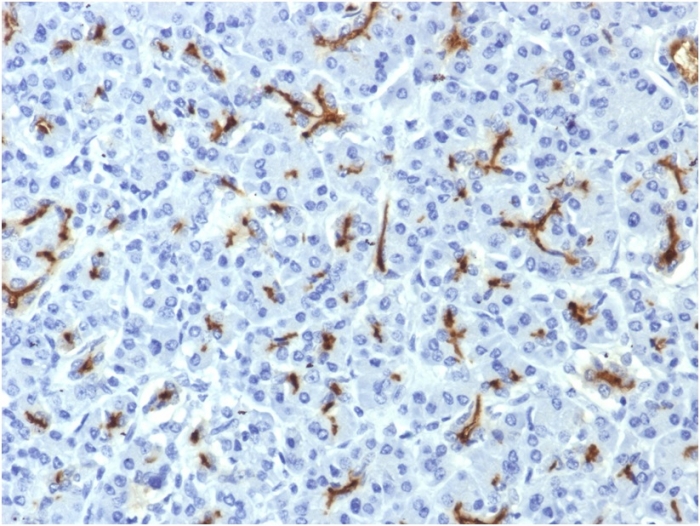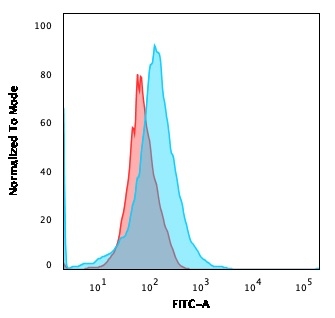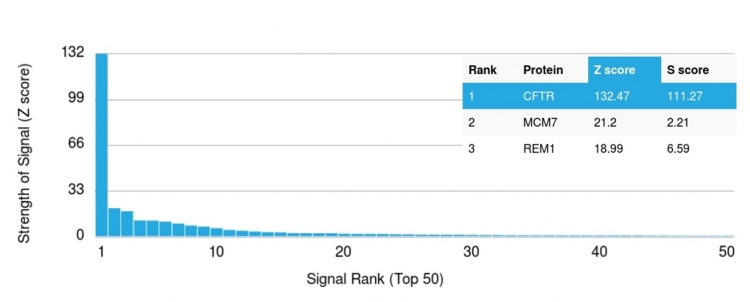Free Shipping in the U.S. for orders over $1000. Shop Now>>

Formalin-fixed, paraffin-embedded human pancreas stained with CFTR Mouse Monoclonal Antibody (CFTR/1643).

Flow cytometric analysis of PFA-fixed MOLT-4 cells. CFTR-Monospecific Mouse Monoclonal Antibody (CFTR/1643) followed bygoat anti-mouse IgG-CF488 (blue); isotype control (red).

Analysis of Protein Array containing >19,000 full-length human proteins using Monospecific Mouse Monoclonal Antibody (CFTR/1643) to CFTR. Z- and S- Score: The Z-score represents the strength of a signal that a monoclonal antibody (MAb) (in combination with a fluorescently-tagged anti-IgG secondary antibody) produces when binding to a particular protein on the HuProtTM array. Z-scores are described in units of standard deviations (SD's) above the mean value of all signals generated on that array. If targets on HuProtTM are arranged in descending order of the Z-score, the S-score is the difference (also in units of SD's) between the Z-score. S-score therefore represents the relative target specificity of a MAb to its intended target. A MAb is considered to specific to its intended target, if the MAb has an S-score of at least 2.5. For example, if a MAb binds to protein X with a Z-score of 43 and to protein Y with a Z-score of 14, then the S-score for the binding of that MAb to protein X is equal to 29.
Recognizes a protein of 165-170kDa, identified as cystic fibrosis transmembrane conductance regulator (CFTR). CFTR is composed of two membrane-spanning domains (MSD), two nucleotide-binding domains (NBD), and an R domain. It is structurally similar to multidrug resistance (Mdr1) protein and both are members of the superfamily of ATP-binding cassette (ABC) transporters, also known as traffic ATPases, which are implicated in the movement of various substrates. The CFTR protein is a small conductance adenosine 3',5'-cyclic monophosphate (cAMP)-activated chloride ion channel found in the apical membranes of epithelia within the pancreas, airway, intestine, bile duct, sweat gland, and male genital ducts. CFTR is a valuable marker of human pancreatic duct cell development and differentiation.
There are no reviews yet.